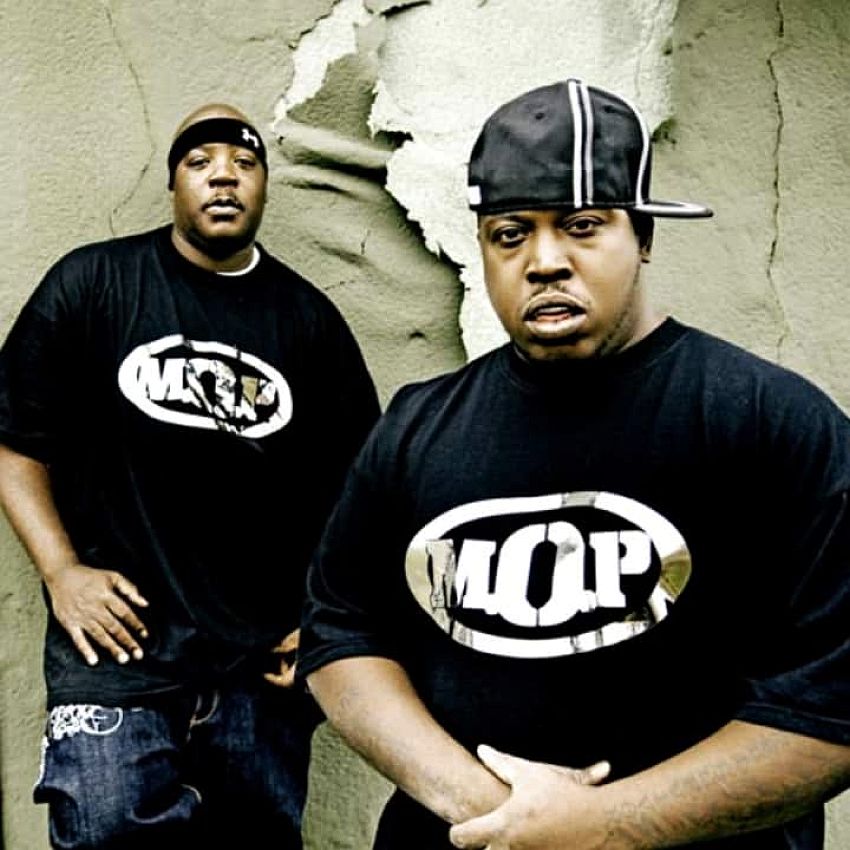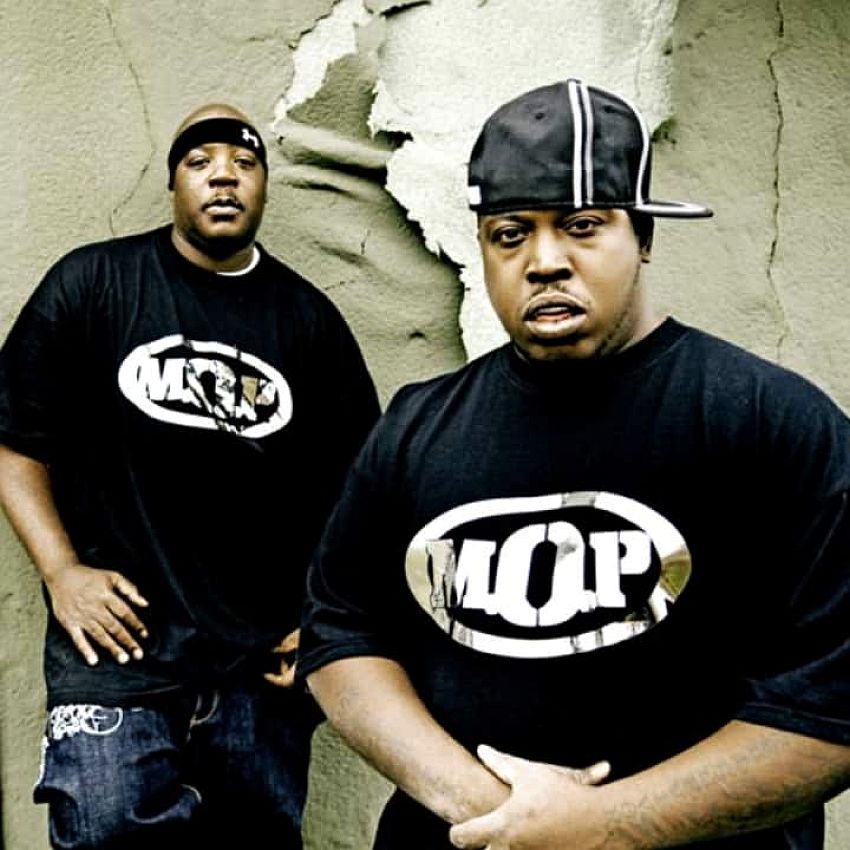
Son Raw will yap the gold cross off Jorge Mario Bergoglio.
Like it or not, every style of music has a golden age and must reckon with where to go after it ends. Despite fusion, free jazz and the current wave of post-hip-hop beat culture, jazz purists continue to pine for the hard bop days of Blue Note. Rock & Roll meanwhile, has carved out an entire canon out of music made in The Beatles’ wake, expanding and contracting the definition of “classic rock” just enough to remain relevant as its audience ages. And hip-hop, to the frustration of both those who fell in love with the genre’s earliest records and proponents of post-millennial Southern rap, still reckons with “the 90s.”
Part of it is basic math. As hip-hop grew from an overachieving subculture to the dominant force in Black pop from 1990-1999, it picked up countless new fans who look back on that decade with fondness. But hip-hop also benefited from wider trends in the music industry, particularly the demand for all things alt as members of Generation X reshaped notions of authenticity in music, with no label nailing this trend better than Loud Records. Home to Wu-Tang, Mobb Deep, Big Pun, Tha Alkaholiks, Xzibit and Pete Rock among others, Loud focused on a style of hip-hop that was darker, rougher and edgier than the B-Boy ballistics at Def Jam, the Black Bohemianism of the Native Tongues at Tommy Boy and Jive, and the crossover-ready jigginess at Bad Boy. Whereas most labels sought to expand their rap act’s reach through R&B audiences, Loud doubled down on rap’s appeal to the rebellious and anti-social: skaters, punk rock kids and anyone ready to bring the ruckus.
It was a double edged sword: on one hand, the label’s sound is fondly remembered and referenced to this day. Like Death Row’s G-funk in California, Wu-Tang and Mobb Deep’s sound can feel like the platonic ideal of New York rap, beloved and expanded upon by current artists like Griselda, Eto, Flee Lord and Mach-Hommy. At the turn of the millennium however, hampered by the end of the alternative boom, the rise of more commercial styles of rap, and distribution problems with Sony, the label was on its last legs. You don’t define the sound of the 90’s by moving gracefully into the 00’s. Yet in October of 2000, Loud still found time for one final, unimpeachable hardcore NYC hip-hop classic: Warriorz, by M.O.P.
The Mash Out Posse of Lil Fame and Billy Danze were newcomers to Loud in 2000, having spent the 90’s bouncing from one label to the next, with plenty of admirers within the New York scene but little commercial success to show for it. Their ’94 debut To the Death introduced their uncompromisingly brutal style of rap to the world and even featured a minor hit in “How About Some Hardcore,” but still failed to live up to the sales of their biggest competitors and stylistic analogues over at Def Jam, Onyx. Firing Squad and First Family 4 Life followed in ’96 and ’98 respectively, but despite A-list guests like Kool G Rap and Jay-Z and heavy support from DJ Premier, then New York’s hottest producer, they remained hardcore rap’s cult favorites. Warriorz, released on Loud Records and executive produced by DJ Premier, promised to change that.
To Loud’s credit, they didn’t mess with the formula: Warriorz is undoubtedly M.O.P.’s crowning achievement, a rowdy, shout-rap master class that succeeded on its own merits and thanks to strong street level marketing instead of a jiggy bait and switch. Even the album’s sole R&B track with The Product G&B, a group best known for the hook to Santana’s “Maria Maria,” was delivered over a blistering Premo beat. Lead single “Ante Up” meanwhile, came courtesy of their longtime collaborator DR Period, and it was an anthem. Even if you reject the notion that writing about music is like dancing about architecture, it’s hard to explain just how intense the reaction to this track was: Bows would get thrown, Nikes scuffed, mosh pits would break out in groups of people who wouldn’t be caught dead at a metal show.
Imagine Shek Wes’ “Mo Bamba” crossed with a sports riot and you’re halfway there.
In a year where Cash Money Records’ materialism reigned supreme, “Ante Up” demanded you tuck in your chain or risk losing it to a hard rock just itching to leave Timberland prints on your face. If Mobb Deep’s “Shook Ones Pt. II” was an ice cold threat, “Ante Up” is the other side of the coin: a barbarian invasion straight out of Brownsville that portrayed robbery and violence as positively joyful.
That exuberantly anti-social behavior is the key to M.O.P.’s appeal. Today more than ever, it’s out of fashion to admit to enjoying hip-hop out of social rebellion. Violence and drug dealing is carefully contextualized as the result of oppressive systemic racism, misogyny is questioned and scorned via Twitter threads, and cultural commenters demand empowerment in every hit song. I guess you could call M.O.P. empowering for writing a hit single about robbing the rich … but then they’d, and I quote: “grab a fuckin’ bat and beat your ass into a seizure.” Their characters on record were FUBU-wearing psychopaths that made Alex from A Clockwork Orange look like Mr. Rogers, and though they meticulously detailed the hardships they’d overcome, it wasn’t to make a political point, it was to warn you that if you tried to fuck with them, you’d get brutally murdered.
Does that sound like a bad time? Well it isn’t. Warriorz is fucking hilarious, you just need a particularly twisted sense of humor to appreciate an album that’s 99% yelling, even on the track called “Calm Down.” Lyrically, both group members bring their A-game, and put it in service of the most over the top fatalities this side of Mortal Kombat. Fame doesn’t just shoot people, he “joins the gun orgie with this forty S and dub.” He’ll “shit in the middle of your show like a horse at the circus.” He’ll “have your ass laying up for months, on a beat machine with a shit bag and a I.V.”, and that’s when he’ll not “yappin’ the gold cross off Jean Paul III.”
When Billy Danze looks back wistfully at the 80s, he’s thinking back about shooting “shots at a party just to see people run”. He claims M.O.P. are “the original Backstreet Boys.” Their second single sampled 70’s arena-rock dorks Foreigner’s “Cold as Ice” and leaned all the way in on the menace. Warriorz is 77 minutes with two deeply damaged individuals who’d rather make each other laugh and make polite society sweat than deal with any of their trauma. As a teenager, it was the best shit ever, and frankly, as an adult eye rolling my way through J. Cole singles and the overwrought think-piece of the month, it’s still the best shit ever.
Of course, a bunch of threats do not a classic make, and the other side to Warriorz’s success is that it’s the single best collection of music M.O.P ever put out. Premier handles about a third of the tracks, but his influence goes beyond contributing beats, as he oversaw the mixes alongside engineer to the underground stars, Eddie Sancho. Ensuring that Lil Fame’s (six beats, under the alias Fizzy Womack) smack just as hard as their own, their care forged Warriorz into an album loud enough to compete in the clubs and hard enough to bang in the whip. The vocals get special attention, and at this point Fame and Danze had their yells, adlibs and rap deliveries down to a science. It’s not just that they came up with the sickest ways to kill people on record, it’s that they could deliver those threats with a high adrenaline force guaranteed to provoke a fight or flight response, their deliveries bouncing off each other like Run DMC on steroids.
Ultimately, the record rides a thin line between over the top boasts and deadly serious threats, nostalgia and nihilism, boom bap bangers and sinister jazz loops. If this was the end of an era in rap, M.O.P. went out with a bang.
Warriorz sold well, but it didn’t sell too well: there’s a hard cap on how much you can expand your audience when the closest thing your record has to feminine energy is M.O.P. manager Fox. Meanwhile, pressure from Sony and compromised albums from Wu-Tang, Xzibit and Mobb Deep meant Loud quickly folded as the music industry contracted in the wake of early 2000’s download culture. M.O.P. subsequently signed with Roc-A-Fella, only to see that label collapse, and their career petered off into a series of mixtapes and independent albums that never quite recaptured Warriorz’s magic.
I don’t think that actually matters: Warriorz was practically a greatest hits collection in itself, and the group had more than enough material to tour off for the next several years. As for the group’s influence, that’s a tougher one to parse. While their over the top punchlines and sinister production remains evergreen, there’s no one even remotely as loud as M.O.P. in rap today — Meek Mill comes close but he’s from a completely different school of rapping, and the remaining shout rappers out there are more likely to look to metalcore for inspiration. M.O.P. were really one off’s, too strange to live but too rare to die, going further down the rabbit hole than their 90’s peers ever did. Trying to recreate a style forged by 80’s Brownsville and nurtured by 90’s New York today would be like trying to rebuild Zeppelin, and NO ONE wants the M.O.P. version of Greta Van Fleet when they can just put on Warriorz.

